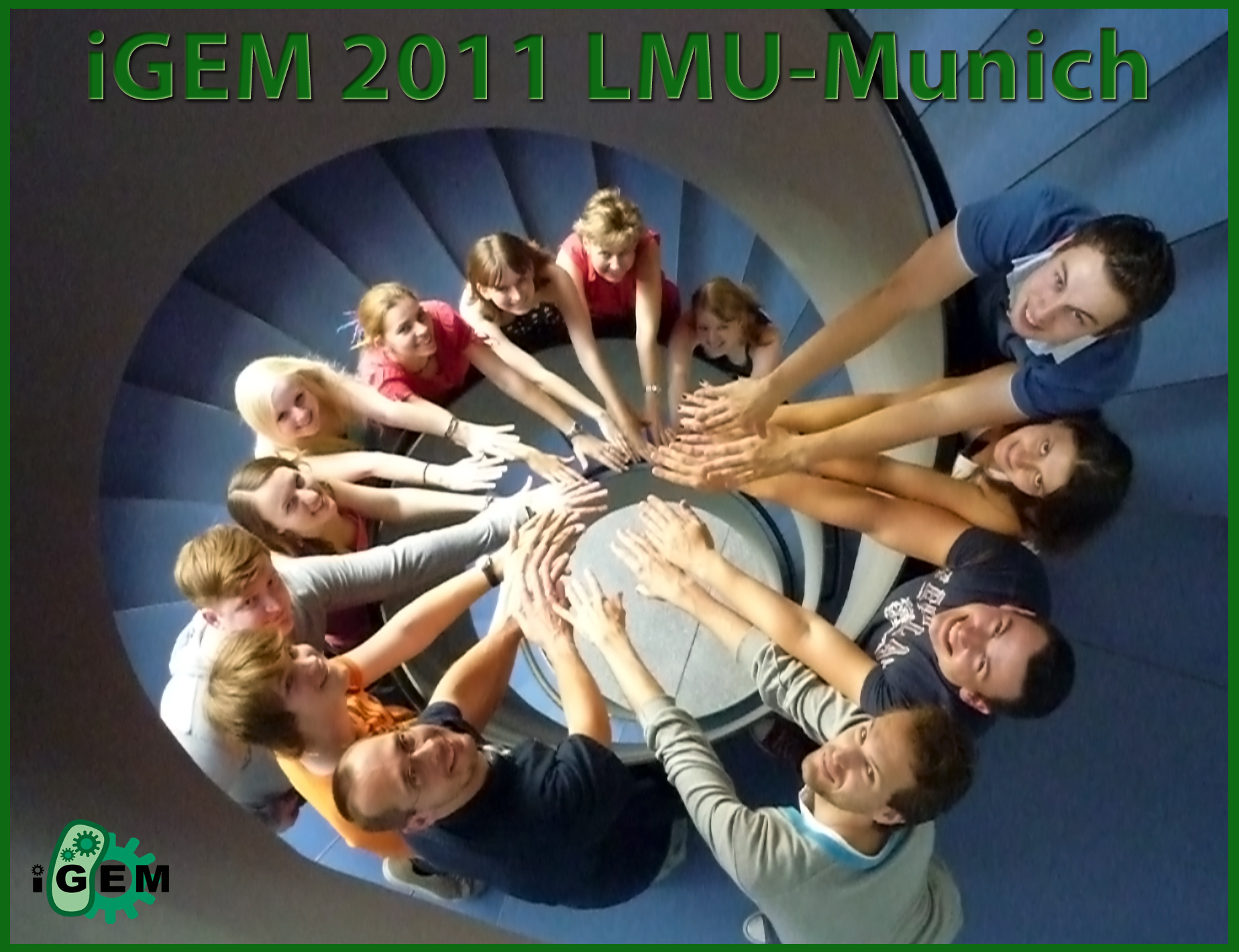Team:LMU-Munich
From 2011.igem.org
| Line 2: | Line 2: | ||
{{:Team:LMU-Munich/Templates/Page Header}} | {{:Team:LMU-Munich/Templates/Page Header}} | ||
<div id="rightcol"> | <div id="rightcol"> | ||
| - | <b>Our Sponsors:</b><br> <html> | + | <b>Our Sponsors:</b><br> <html><br> |
<font size="2" face="verdana"> </font> | <font size="2" face="verdana"> </font> | ||
<a href="http://www.promega.com/de/"> | <a href="http://www.promega.com/de/"> | ||
| Line 45: | Line 45: | ||
<br /> | <br /> | ||
</div> | </div> | ||
| - | + | <div style="text-align:left"> | |
| + | <h4>Meet our team...</h4> | ||
| + | </div> | ||
<html><div align="center"> | <html><div align="center"> | ||
Revision as of 20:30, 14 September 2011
Our Sponsors:

Promega
 Greiner bio one - Your power for health
Greiner bio one - Your power for health

Carl Roth
 metabion
metabion
 BioTek
BioTek
Meet our team...
Bacteria sense metals in their surrounding in order to change their expression profile or react in order to adapt and accomodate to their environment.
Using these sensors from (mostly) bacteria we create biosensors by linking them to the expression of a reporter (e.g. green glowing by the green fluorescent protein GFP). To not only qualify but also to quantify the metals, it is also necessary to measure the output by given input (metal concentration) for each of these biosensors. Afterwards one can determine the metal concentration by measuring the output.
The quantification needs heavy high-tech machinery ... something not always given ... especially in free field. So a qualification of metals with a easy-to-see output is also needed.
In the end our team hopes to have not only a set of metallsensors for precise quantification of a group of (heavy) metalls, but also an outdoor kit for qualifying metalls in more remote areas. With these it might be more easy and cheaper to determine the content of metals in our drinking water.
Foto of the LMU faculty for biology from:
http://www.flickr.com/photos/johannesmeyer/5795660299/sizes/l/in/photostream/
 "
"

